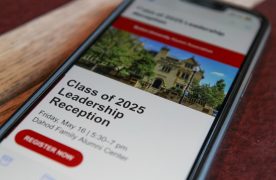It’s no secret that undocumented workers are the lifeblood of a multitude of industries, from agriculture to food service to manufacturing. They do the jobs that working and middle class Americans don’t want to do — typically tough, labor-intensive work that demands long hours with little time for rest.
Additionally, because they don’t have American citizenship, undocumented workers are often manipulated by large companies looking to cut costs, like Tyson, Walmart, Monsanto and others. Since these people’s employment is handled under the table, away from the government’s prying eyes, workers are often too afraid to demand raises, benefits or even basic rights, for fear of being deported.
Exactly how much do they contribute? Well, let’s take restaurants, for example. According to CNN Money, the restaurant industry employs an incredibly large amount of undocumented workers, with 1.1 million undocumented people working in American restaurants in 2014 alone, second only to construction, which employed 1.3 million undocumented immigrants in 2014.
Most restaurants are very protective of their undocumented employees, recognizing the contributions they make and the key roles they play in keeping a business running smoothly and efficiently. In short, without them, the industry would fall apart.
It’s common sense, if you think about it. Dishes have to get washed, tables have to be bussed, food has to make it to the table and meals have to be prepped — and undocumented people usually work as dishwashers, bussers, food-runners and prep cooks.
Don’t think that it’s only low-quality chain restaurants that hire undocumented people. Fine dining restaurants do it, too. There’s a good chance your $60 steak and $15 sides are the result of both undocumented and documented labor, harmoniously intertwined. The head chef who went to culinary school, and the undocumented line cook who is trying to put his kid through college work together in the kitchen seamlessly. Yet, one of them gets respect and reverence, while the other is constantly put through the ringer, criticized nonstop and routinely insulted.
Instead, we ought to appreciate, protect and offer these workers viable paths to citizenship. We aren’t really celebrating labor or Labor Day if we aren’t celebrating black and brown labor. We aren’t really standing with labor as a collective if we don’t stand with undocumented workers, whether they be they cooks, construction workers or migrant food pickers.
Just like laborers don’t fit one set mold, undocumented workers don’t either. Undocumented workers are not just low-skilled laborers, they are also the 790,000 highly skilled, college-educated DREAMers contributing to our service and business sectors every day, according to Pew Research Center. They’re workers too, whether they are already in the workforce, or training to do so — and right now, they’re under attack.
I went to a high school in a relatively low-income area, with a high percentage of undocumented students. Public education, if it’s functioning properly, should not discriminate against undocumented students. In New Jersey, at least, the documents that are required when registering a child for public school are all things you can obtain without your papers — like a phone bill, an employee pay stub or proof of address.
College, on the other hand, is a very different story. I know people who’ve had to apply as international students, despite living in the United States their entire lives, and international students who are not eligible for the same type of financial aid as American born students are. Suppose, though, that you’re lucky, and you get into one of the few schools with a program that skirts around all these barriers. Even still, the most the school can do is decline to give out your information to Immigration and Customs Enforcement. They can’t help you if you’re stopped on the street, or if you’re arrested for a minor crime. You’re on your own at that point.
We have vast swaths of Dreamers either in college, ready to work or already working. They went to the same schools as us, worked the same schedules and took the same buses. Yet, talented college students from blue collar backgrounds are celebrated, while Dreamers are chastised and blamed for the failures of the economy and of Americanism as a whole.
Beyond the great economic contributions of undocumented workers, both low and high-skilled, they are people, and bonafide Americans, whether they’ve got papers of not. For some of them, all they’ve ever known is America — American culture, American values and American history.
We’ve never been a nation bound by blood, by creed, by ethnicity. What holds us together are our values, independent of people, free of corruption and fraying — because they exist in the abstract. Undocumented workers understand and enshrine these values in their everyday lives and dreams, sometimes even better than naturally born Americans complaining about “illegal aliens” and taxes. Next Labor Day, we ought to celebrate that.










